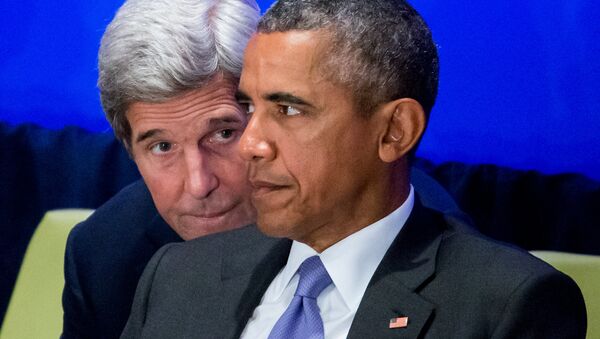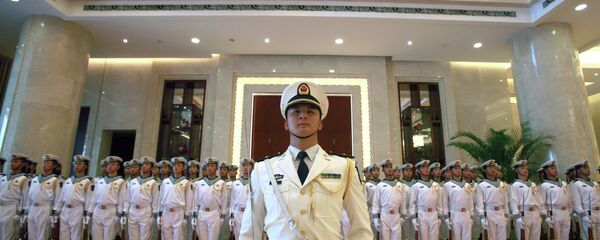The visit had an official and a symbolic moment to it where the latter was almost more important.
Sputnik spoke with expert on the central strategic developments Anton Tsvetov.
“While many in Trump’s administration actively criticized Obama for weakness and abstruseness in Asian politics, one cannot ignore the energy with which the Democratic administration took to Asia. The rotation strategy was clearly meant to be comprehensive and should have included the development of both traditional military alliances and all sorts of partnerships, new and old,” Tsvetov told Sputnik.
“Of course, the latter significantly contributed to the permanent ‘export’ of uncertainty of Pyongyang — from the incident with the Cheonan corvette in 2010 until the last nuclear tests.”
He further said that Washington has actively tried to build bridges between the two allies during the last few years despite continuing disagreements on difficult historical issues. In March 2016 a trilateral meeting of the highest level was held in Washington DC.
“On the South-Eastern Front situation was more complicated. With Philippines President Benigno Aquino III a new union treaty was signed (EDCA), which involved deployment of rotating US armed forces on the Philippine’s archipelago. Only in the last few months of the Obama’s presidency, the new Philippine leader Rodrigo Duterte questioned at least the external magnanimity of the US-Philippine alliance,” Tsvetov said.
Secretary of Defense Ashton Carter called the new mechanism of influence of the US a “principled security community.”
“This more elegant approach to strengthen influence in East Asia through ‘leading from behind’ was seen as surrender by many hawks in Washington. These people saw the new level of activity on part of China in the East China and South China seas and China’s economic initiatives as a result of Obama’s lack of firmness.”
According to the expert, China has indeed continued to diversify its foreign policy and not always in favor of the US. Besides, Trump’s promise to close the Trans-Pacific Partnership project jeopardized the whole economic element.
“However, Vietnam will continue to interest the United States as part of China's deterrence and Hanoi will welcome this interest up until there is friction between China and small countries of the region,” the expert concluded.




